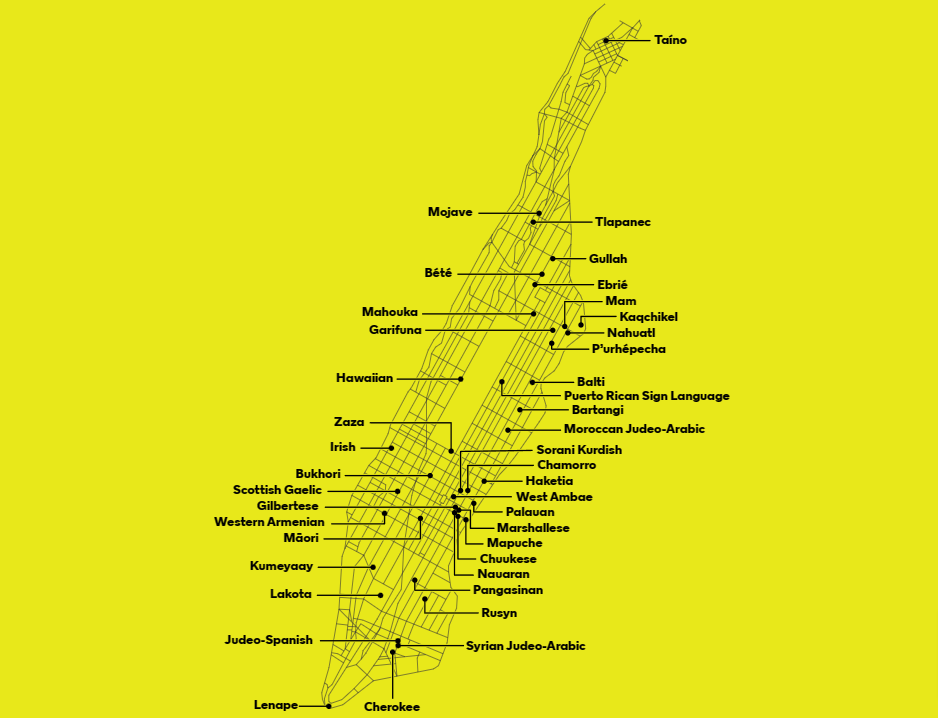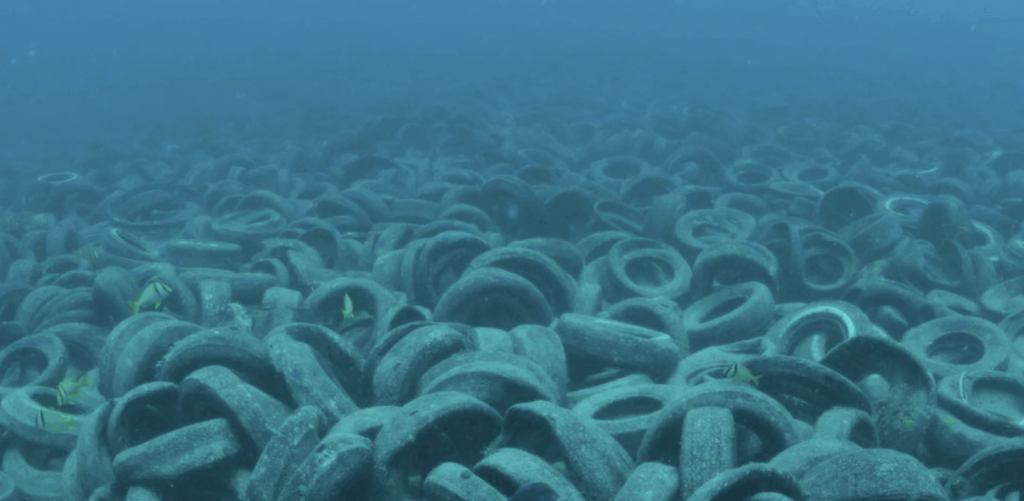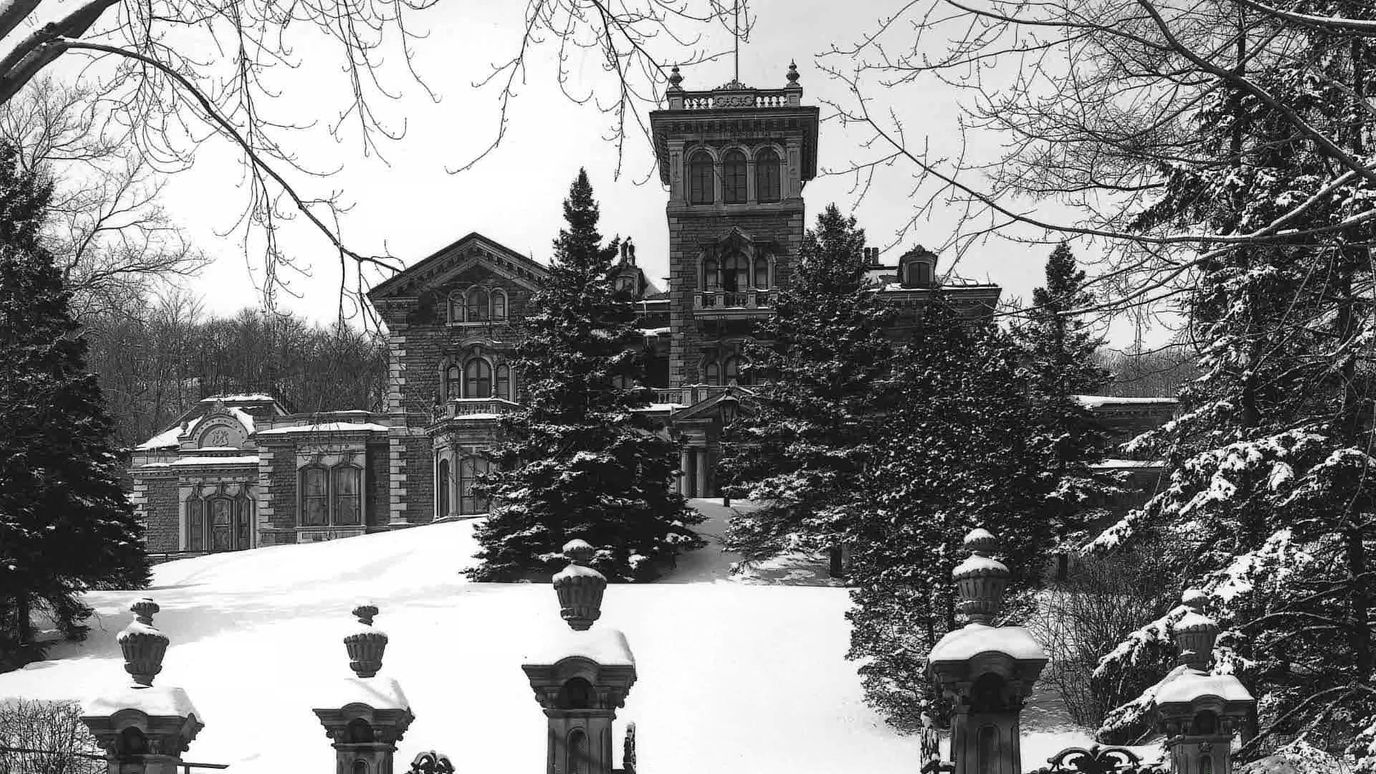New York is the capital of endangered languages

From the NYT: "Most people think of endangered languages as far-flung or exotic. “You go to some distant mountain or island, and you collect stories,” the linguist Ross Perlin says, describing a typical view of how such languages are studied. But of the 700 or so speakers of Seke, most of whom can be found in a cluster of villages in Nepal, more than 150 have lived in or around two apartment buildings in Brooklyn. Bishnupriya Manipuri, a minority language of Bangladesh and India, has become a minority language of Queens. There are more endangered languages in and around New York City than have ever existed anywhere else, says Perlin, who has spent 11 years trying to document them."
A project designed to help save coral reefs backfired and made things worse

From Now I Know: "In the 1970s, fishermen near Fort Lauderdale found the area’s natural coral reefs were dying, so some of them had an idea: they decided to throw a lot of automobile tires in the water. In the preceding few years, a number of places around the world had done something similar, with a seemingly positive effect. Someone — it’s unclear who was first — postulated that discarded tires could function as artificial reefs. It was a win-win situation, and one that seemed to make sense. Small reefs made of discarded tires were created in multiple places throughout the world. But over time, this idea turned into a disaster, causing the type of harm they were supposed to remediate."
How the son of a slave became a famous French fencer, violinist and composer

From JSTOR Daily: "As a person of color, Joseph Bologne, Chevalier de Saint-Georges, was unlike many of his peers. He was born in 1745 on the island of Guadeloupe, the son of a plantation owner and an enslaved woman. Because of the laws of the time, known as the Code Noir, he had the same status as his mother—enslaved. Because he was his father’s only son, his father took an interest in him and insisted that he receive an aristocratic education, excelling in weaponry and courtly music. He would excel at both. y the time he graduated from a private fencing academy in 1766, Bologne was named a chevalier (knight)."
Editor's note: If you like this newsletter, please share it with someone else. And if you really like it, perhaps you could subscribe, or contribute something via my Patreon. Thanks for being a reader!
How the race to develop mind control technology changed America forever

From MIT: "In 1959, Edward Hunter testified before a US Senate subcommittee investigating the effect of Red China Communes on the United States. It was the kind of opportunity he relished. A war correspondent who had spent considerable time in Asia, Hunter had achieved brief media stardom in 1951 after his book Brain-Washing in Red China introduced a new concept to the American public: a supposedly scientific system for changing people’s minds, even making them love things they once hated. But Hunter wasn’t just a reporter, he was also an anticommunist activist who served as a propagandist for the OSS, or Office of Strategic Services."
The remarkable life of Beryl Markham, the first woman to fly solo across the Atlantic

From The Current: "Beryl Markham lived from 1902 to 1986. Born in England, she was raised by her father in Kenya. She worked as a horse trainer from 17 and then became a pilot, flying across parts of Africa, and eventually became the first person to fly solo across the Atlantic from Britain to North America. She also wrote a book, West With the Night, that Hemingway considered a “wonderful book.” As a small girl she hunted with spears alongside men her father employed on his farm. She was once attacked by a pet lion. When she was seventeen and a half, her father moved to Peru but she stayed in Kenya."
How the olive trade between the New World and the Old led to globalization

From El Pais: "The five ships in the first round-the-world expedition (San Antonio, Trinidad, Concepción, Victoria and Santiago), commanded by Ferdinand Magellan, departed from Seville in August 1519. In their holds they stored 5,966 liters of olive oil worth a total price of 58,425 maravedís, according to the records kept in the General Archive of the Indies in Seville, Spain. The Manila galleon unified the world for economic purposes for the first time because, although there had been precedents such as the Silk Road or the contemporary Spice Route, none of them reached that geographical dimension that linked three continents with repercussions that went beyond the commercial and affected culture or the expansion of food.”
This is how big an eagle's talon is
Ever wonder how big an Eagle talon is? pic.twitter.com/cI6OnqhRzh
— Nature is Amazing ☘️ (@AMAZlNGNATURE) April 29, 2024
Acknowledgements: I find a lot of these links myself, but I also get some from other newsletters that I rely on as "serendipity engines," such as The Morning News from Rosecrans Baldwin and Andrew Womack, Jodi Ettenberg's Curious About Everything, Dan Lewis's Now I Know, Robert Cottrell and Caroline Crampton's The Browser, Clive Thompson's Linkfest, Noah Brier and Colin Nagy's Why Is This Interesting, Maria Popova's The Marginalian, Sheehan Quirke AKA The Cultural Tutor, the Smithsonian magazine, and JSTOR Daily. If you come across something interesting that you think should be included here, please feel free to email me at mathew @ mathewingram dot com



